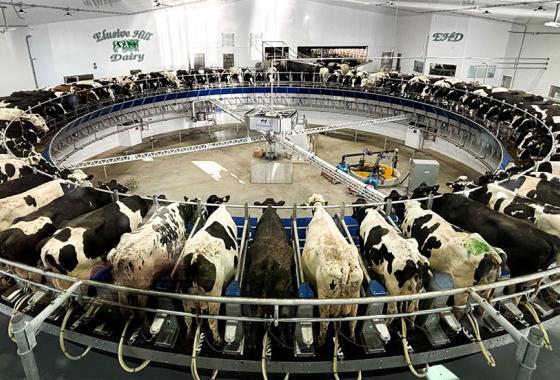
Mid-State and Aspirus launch Health Care Simulation Center in Wisconsin Rapids
Simulation training is at the forefront of health care education, and a new Health Care Simulation Center in Wisconsin Rapids is now open, creating a bridge between classroom learning and real-life clinical experience to address the health care workforce shortage in central Wisconsin.
At 12,000 square feet, the Simulation Center’s innovative design repurposes a portion of the third floor of Aspirus Riverview Hospital. The center allows Mid-State Technical College to greatly increase nursing student capacity and provide experiences for all health and EMS programs at the College. It will also provide professional development for current health care professionals through continuing education and customized training.
The center is the result of a three-way collaboration agreement between the hospital, Mid-State Technical College and The Legacy Foundation of Central Wisconsin, which provided a generous donation to help renovate the hospital’s former birthplace space and outfit it with state-of-the-art equipment.
“At Aspirus, we are committed to providing state-of-the-art care to our community,” said Kim Johnson, vice president of patient care and chief nursing officer at Aspirus Riverview Hospital and Clinics. “To succeed, we require a highly competent health care team, both in the hospital as well as in the field. We are thrilled to partner with Mid-State in the development of the Simulation Center, which will advance the education of our future employees and create the workforce that we need to serve our community.”
Students training in the Simulation Center work in both inpatient and outpatient care zones and have access to nine medium-fidelity and high-fidelity manikins that replicate nearly all clinical scenarios, including stroke, sepsis infection, bleeding, shock, birthing and more. The manikins enable students to practice their skills in a consequence-free environment before progressing to clinical training with live patients. Simulation sessions can also be recorded for review and debriefing purposes—an educational opportunity rarely available with traditional clinical training.
“This fosters a great learning environment, and I’ve been amazed by the technology we have access to,” said Austin Brace, Marshfield, a Mid-State EMT-Paramedic student who has been practicing his skills in the Simulation Center for the past few weeks. “The control center uses cameras and microphones to update the high-fidelity manikins in real time, which allows you to practice realistic hands-on monitoring of the patient’s physiology. If I make a mistake, I can see the impact without the detrimental consequences of working with a real patient.”
Like other areas in the nation, Mid-State Technical College’s district is facing a shortage of health care professionals. According to economic modeling software on the district, the next decade will produce a health care worker shortfall of 23 percent in the programs Mid-State offers. That shortfall is due to retiring professionals and doesn’t include increased demand for health care services required by an aging population.
When it came to helping address the problem, the College had been encountering a shortage of its own—not enough clinical sites and experiences available to train the number of students wanting to enroll.
“This Simulation Center allows room for growth,” said Colleen Kane, Mid-State’s Dean of Health and Protective & Human Services. “In Wisconsin, up to 50 percent of the clinical hours required in undergraduate nursing programs can be obtained through high-fidelity simulation. This center will enable Mid-State to increase our nursing class sizes by eight students each semester over the next two years, getting more nurses—as well as other health care professionals—into our community caring for patients. By 2025, Mid-State will have the capacity to train up to 350 nursing students each year.”
According to Kane, another benefit of simulation is enhanced student clinical experiences, with greater depth and breadth of patient care encounter available for students. “This solution will allow Mid-State to provide advanced experiences for all Mid-State Health Care and EMS programs,” she said.
“The partnership with Aspirus Riverview Hospital and Clinics also offers the opportunity to support creative training forums for the hospital’s current health care professionals,” she added.
Mid-State Technical College and Riverview Hospital in Wisconsin Rapids have enjoyed a collaborative relationship for over three decades. Over the past three years, that partnership has focused intently on solving the health care worker shortage. The partners are planning a ribbon cutting for the Health Care Simulation Center at a later date.
Learn more about the Health Care Simulation Center and the Mid-State programs training in it at mstc.edu/sim-center.






